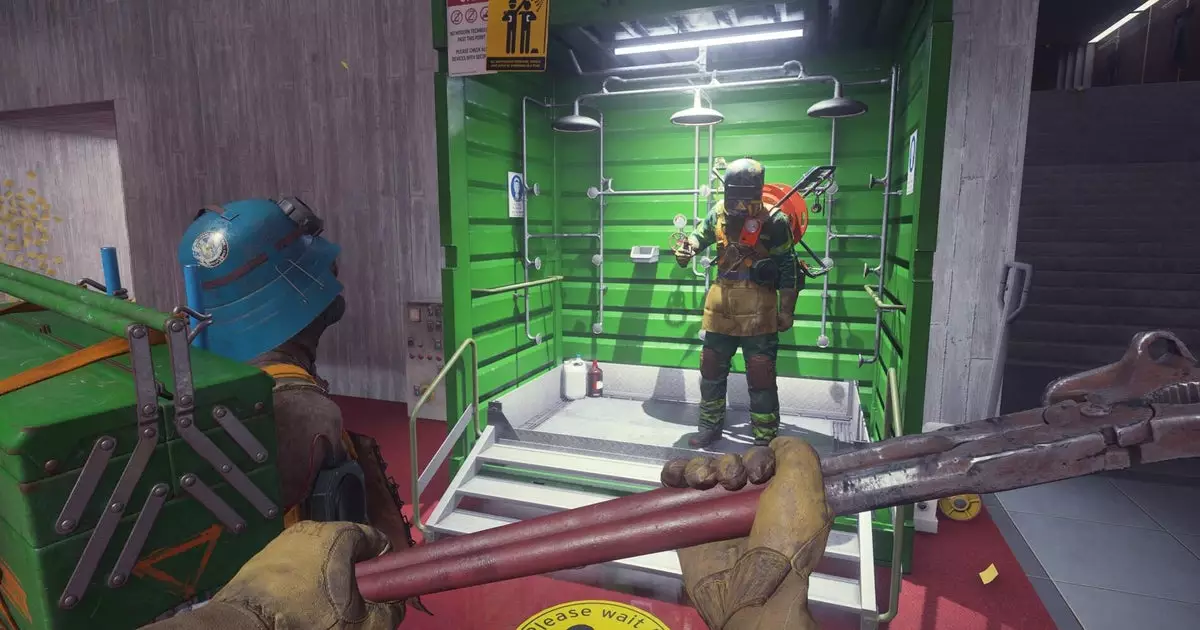The world of video games is continuously evolving, with developers experimenting with various genres and features to engage players. One of the latest entrants into the multiplayer arena is Remedy Entertainment, known for their immersive single-player experiences, which have now announced their foray into the cooperative shooter genre with FBC: Firebreak. This new title, set within the eerie and enigmatic universe of Control, offers a refreshing twist on familiar gameplay mechanics.
A New Chapter in the Remedy Connected Universe
Remedy Entertainment has made a name for itself through titles such as Alan Wake and Control, games renowned for their narrative depth and atmospheric world-building. With FBC: Firebreak, developers are branching out by integrating cooperative multiplayer elements while remaining loyal to the sinister and surreal aesthetic that fans have come to love. Unlike their past single-player titles, this game introduces players to the role of a “first responder” within the Federal Bureau of Control (FBC), where they combat supernatural invasions within the Oldest House—a shape-shifting Brutalist edifice that serves as the main setting.
By placing players in a combined effort against paranormal threats, Remedy aims to create a unique gameplay experience that blends action and strategy. Each player will assume one of three roles while utilizing Overwatch-like “ultimates,” likened to the unpredictable nature of a jaguar concealed within a box. This metaphor suggests that players must collaborate carefully and tactically, emphasizing the need for teamwork in the face of chaos, which is a departure from the often solitary experiences of previous Remedy titles.
Accessibility Versus Depth: Finding the Balance
One of the standout features of FBC: Firebreak is its potential approach to accessibility, as highlighted by Remedy’s communication director, Thomas Puha. His assertion that the game avoids the pitfalls associated with many service-based titles—like excessive grinding and loadout preparations—indicates a desire to welcome both newcomers and seasoned players alike. Rather than expecting players to invest significant time and effort outside of actual gameplay, FBC: Firebreak prioritizes immediate accessibility and enjoyment.
However, this doesn’t imply that FBC: Firebreak lacks depth. Elements of player progression and unlockable content are present, inviting players to engage without the anxiety of daily participation or missed opportunities. This balance strikes a commendable note, aiming to foster a fun environment where users can gather with friends without the pressure of obligation, a shift in mindset that is promising in today’s fast-paced gaming world.
While FBC: Firebreak is positioned as a multiplayer experience, it does not completely abandon the rich storytelling for which Remedy is known. Game director Mike Kayatta acknowledges the importance of integrating FBC: Firebreak into the broader lore of the Control universe, ensuring players still interact with familiar characters and locations—albeit from a different perspective. The intent here is not to replicate the intense narrative focus found in previous games but to provide a distinct storytelling approach suitable for cooperative play.
This decision is intriguing as it acknowledges the narrative’s secondary role in a multiplayer shooter. Friends chatting during gaming sessions may not prioritize deep lore discussions; thus, Remedy is embracing this reality to craft an experience that doesn’t sacrifice the narrative aspect while still promoting an action-oriented focus.
FBC: Firebreak is positioned as a standalone experience, promising expansions with post-launch content to keep players engaged. The developers aim to avoid the common pitfall of turning their game into a relentless content factory, an issue that has plagued several multiplayer-focused titles. Instead, their goal is to maintain player interest through new experiences within the ever-surprising world of the FBC.
As the gaming community anticipates the release of FBC: Firebreak, it raises numerous questions about how Remedy will evolve its distinctive style into a multiplayer format. The blend of cooperative dynamics, strategic gameplay, and narrative connections within the Remedy Connected Universe creates fervent excitement. The hope is that their approach will not only thrill those who have followed their journey for years but also invite new players into the depths of the peculiar and haunting world they have developed.


Leave a Reply